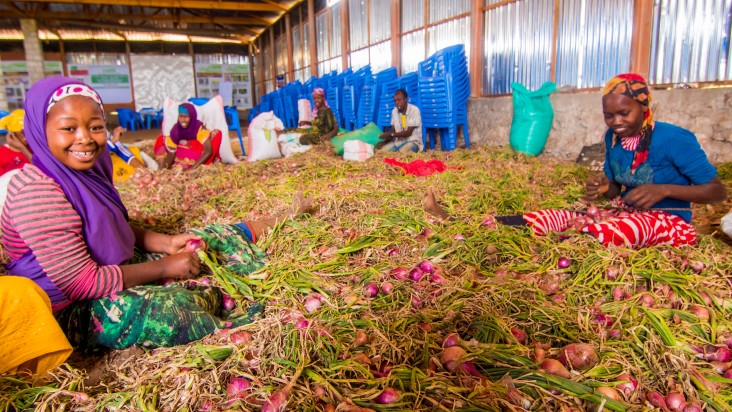Speeches Shim

Resilience to drought is essential as Somalia is located in a drought-prone environment and has suffered from some of the worst famines in recent history. Unfortunately, farming practices tend to be constrained by skill level, a lack of government extension services, few protected storage facilities, and poor roads. To improve profits and local sales, USAID trains farmers and local agribusinesses in crop production and quality control. Demonstration farms are set up so that farmers can test local seed varieties in tomatoes, onions, sweet and hot peppers, lettuce, cabbage, garlic, and watermelon and learn better farming techniques. This has led to increased yields and a greater variety of produce for the local market, enhancing food security.
USAID's economic growth activity, Growth, Enterprise, Employment and Livelihoods, boosts Somali exports of agriculture, fish, and non-pastoral livestock products; reduces reliance on inputs; and increases job opportunities in regions recovering from years of conflict and recent natural disasters. It provides technical advice to non-pastoral livestock owners and institutions to improve the quality of their animals, which enables higher selling prices.


Comment
Make a general inquiry or suggest an improvement.